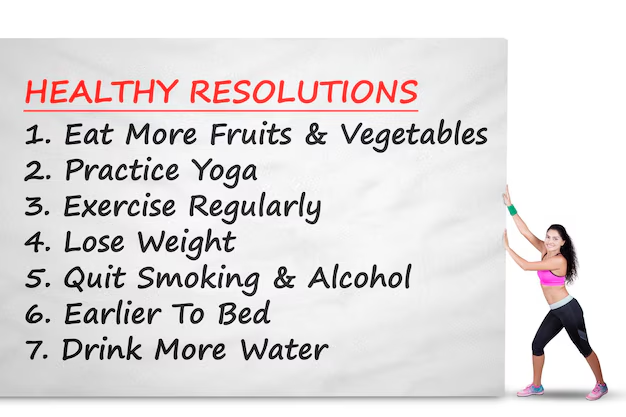
In the pursuit of a healthier lifestyle, the journey often feels overwhelming. With countless diets, exercise programs, and wellness trends circulating, it’s hard to know where to start. However, the key to lasting health transformation lies in simple, proven strategies that you can integrate into your everyday life. Whether you’re looking to improve your fitness, manage stress, or enhance your overall well-being, these tips will help you take meaningful steps toward a healthier and happier you.
1. Set Clear, Achievable Goals
The first step to transforming your health is setting clear and achievable goals. Instead of vague resolutions like “get fit” or “lose weight,” break your goals down into specific, measurable targets. For example, aim to exercise for 30 minutes a day, three times a week, or focus on eating one serving of vegetables with every meal. By setting attainable milestones, you’ll be able to track your progress, stay motivated, and feel accomplished along the way.
2. Incorporate Consistent Physical Activity
Regular physical activity is one of the most important pillars of good health. It not only helps you manage your weight but also boosts energy levels, reduces the risk of chronic diseases, and improves mental health. Finding an exercise routine that fits your lifestyle is crucial for long-term success. If you enjoy cardio, try walking, running, or cycling. If you prefer low-impact exercise, consider yoga or swimming. Additionally, don’t forget the importance of strength training—building muscle helps increase metabolism and supports joint health. The key is consistency—aim for at least 150 minutes of moderate-intensity activity per week.
3. Fuel Your Body with Nutritious Foods
What you eat directly impacts your energy, mood, and overall well-being. Focus on nourishing your body with nutrient-dense foods that provide the vitamins, minerals, and antioxidants needed to function optimally. Choose whole foods like fruits, vegetables, lean proteins, whole grains, and healthy fats. Limit processed foods, refined sugars, and unhealthy fats, which can contribute to inflammation and other health issues. Meal prepping can be a helpful strategy for ensuring you always have healthy options available, making it easier to stick to your nutrition goals.
4. Prioritize Sleep and Recovery
Quality sleep is a game-changer for both physical and mental health. Sleep is when your body repairs itself, consolidates memories, and rejuvenates for the day ahead. Inadequate sleep can lead to weight gain, irritability, weakened immunity, and decreased physical performance. Aim for 7-9 hours of sleep each night, and establish a bedtime routine to promote relaxation. Avoid screens and heavy meals before bed, and create a sleep-friendly environment by keeping your room dark and cool. Additionally, don’t underestimate the importance of recovery days from exercise. Allowing your body time to rest is crucial for muscle growth and preventing burnout.
5. Manage Stress for Better Well-being
Chronic stress can have a profound impact on your health, leading to sleep disturbances, anxiety, and even physical illness. It’s essential to find ways to manage stress effectively. Incorporating relaxation techniques such as deep breathing, mindfulness meditation, or progressive muscle relaxation can help reduce stress levels. Physical activity, such as yoga or walking in nature, is also a great way to alleviate tension and calm the mind. Lastly, ensure that you’re taking time to enjoy hobbies, socializing, and engaging in activities that bring you joy—these moments of relaxation are essential for mental and emotional well-being.
6. Stay Hydrated
Hydration is often overlooked but is essential for maintaining your energy levels and supporting bodily functions. Water helps regulate body temperature, aids in digestion, and keeps your skin healthy. Aim to drink at least 8 cups (64 ounces) of water a day, and more if you’re physically active or in a hot climate. You can also hydrate through foods like fruits and vegetables, which have high water content. If plain water doesn’t appeal to you, try infusing it with slices of lemon, cucumber, or berries for added flavor without the added sugar of sodas or juices.
7. Build a Supportive Routine
Creating a routine can bring structure to your life, making it easier to stay on track with your fitness and wellness goals. Start by scheduling your workouts, meal prep sessions, and relaxation time just like any other important appointment. Having a set routine will help you stay consistent and prevent life’s distractions from derailing your progress. Additionally, don’t be afraid to ask for support from friends, family, or a fitness professional. Having someone to hold you accountable or share your goals with can boost motivation and make the process more enjoyable.
8. Track Your Progress and Celebrate Achievements
Tracking your progress is an excellent way to stay motivated and see how far you’ve come. Whether through a fitness app, a journal, or progress photos, measuring small wins along the way helps you stay on course. Celebrate every achievement—whether it’s completing a workout, eating a healthy meal, or hitting a personal best. Acknowledging your hard work will reinforce your commitment to your goals and remind you that your health journey is worth it.
Conclusion
Transforming your health doesn’t require drastic changes overnight. By setting clear goals, committing to consistent exercise, nourishing your body with whole foods, prioritizing sleep, managing stress, and staying hydrated, you can make sustainable improvements that lead to long-lasting results. Remember, health is a journey, not a destination, and every step you take is progress. Stay patient, stay committed, and enjoy the positive changes that come with prioritizing your fitness and well-being. With time, you’ll be amazed at the transformation in your body, mind, and life.












